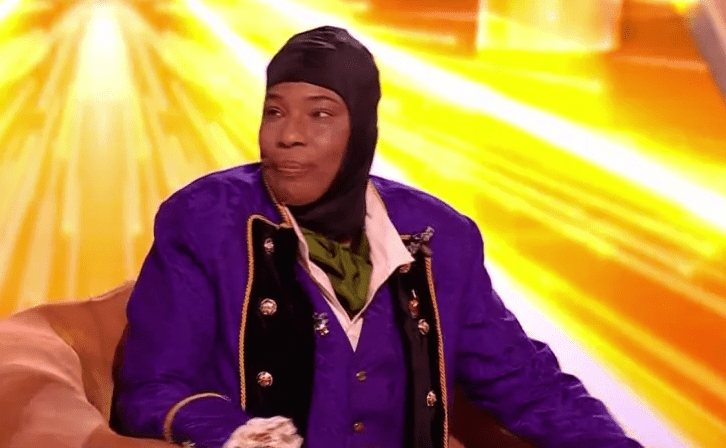Macy Gray’s Dramatic Exit: A Night to Remember on ‘The Masked Singer’
In a stunning turn of events, Grammy-winning artist Macy Gray left the stage in a whirlwind during her appearance on ITV’s ‘The Masked Singer.’ This unexpected departure has not only left fans in shock but has also sparked a broader conversation about the pressures of celebrity performances and the essence of sportsmanship in entertainment. The dramatic exit encapsulated a night filled with surprises, raising questions about the dynamics of reality TV and the mental toll it can take on its participants.
The Context of ‘The Masked Singer’
‘The Masked Singer’ has become a cultural phenomenon since its inception, blending music, mystery, and celebrity intrigue. Contestants, cloaked in elaborate costumes, perform while trying to keep their identities under wraps. The audience and judges guess who is behind the mask, creating an engaging experience that combines talent with theatricality. However, the pressure of anonymity and competition can be overwhelming, even for seasoned artists like Macy Gray.
Macy Gray’s Journey on the Show
Macy Gray, known for her distinctive raspy voice and eclectic style, entered the competition with high expectations. Her performances were met with enthusiasm, showcasing her vocal prowess and stage presence. Yet, as the competition intensified, the stress of maintaining her disguise while competing against other talented performers began to take its toll.
During her final performance, Gray’s emotions were palpable. The combination of nerves and the pressure to entertain led to a moment that would shock viewers: her sudden exit from the stage. This unexpected turn left fans wondering about the circumstances surrounding her departure and raised questions about the mental and emotional challenges faced by contestants on such high-stakes shows.
Understanding the Pressure of Performance
Performing live, especially in a competitive format like ‘The Masked Singer,’ can be an intense experience. Contestants face not only the challenge of delivering a stellar performance but also the anxiety of public scrutiny and the fear of being eliminated. For artists like Macy Gray, who have enjoyed significant success, the prospect of being judged in such a format can amplify feelings of vulnerability.
- Public Scrutiny: Every move is monitored, and the fear of disappointing fans or critics can weigh heavily on a performer.
- Identity Crisis: The need to maintain anonymity while showcasing talent can create a conflicting sense of self.
- Performance Anxiety: Even the most seasoned artists can experience nerves, which can manifest in unexpected ways.
The Aftermath of Gray’s Exit
Macy Gray’s dramatic exit has prompted a wave of discussions across social media and entertainment platforms. Fans expressed their concern for her well-being while others debated the implications of her departure on the show’s integrity. Was it a lack of sportsmanship, or merely a human reaction to overwhelming pressure? This incident has highlighted the importance of mental health awareness in the entertainment industry.
The Role of Sportsmanship in Entertainment
In sports, the concept of sportsmanship is well understood; it encompasses respect for opponents, graciousness in victory or defeat, and the spirit of fair play. However, in entertainment, particularly reality TV, the lines can blur. Contestants are not just competing for a title; they are performing under the watchful eyes of audiences and judges, often leading to heightened emotions.
Gray’s exit has reignited conversations about how we, as viewers, perceive and react to performances. Are we prioritizing entertainment over the mental and emotional health of the participants? It’s vital to recognize that behind the masks and costumes, there are real people with feelings and personal struggles.
Addressing Mental Health in the Entertainment Industry
The entertainment industry has made strides in recent years toward addressing mental health, but incidents like Macy Gray’s exit remind us of the work that remains. Here are a few considerations:
- Support Systems: Providing contestants with mental health resources and support during competitions can mitigate some of the stress.
- Open Conversations: Encouraging open discussions about mental health can help normalize the struggles that many performers face.
- Changing Expectations: Adjusting audience expectations to prioritize well-being over perfection can create a healthier environment for participants.
The Future of ‘The Masked Singer’
The fallout from Macy Gray’s dramatic exit may influence how ‘The Masked Singer’ approaches future seasons. Producers may consider incorporating more mental health resources and support for contestants, recognizing that the pressures of performance can be immense. Furthermore, the show could benefit from fostering a culture of understanding and empathy among its contestants and audience.
As the entertainment landscape continues to evolve, it is crucial to balance the thrill of competition with the well-being of those involved. The audience’s engagement should not come at the expense of a contestant’s mental health. Macy Gray’s experience serves as a poignant reminder of the human element behind the entertainment facade.
Conclusion: A Lesson in Humanity
Macy Gray’s dramatic exit from ‘The Masked Singer’ is more than just a moment of shock; it is a reflection of the challenges faced by artists in the reality TV arena. As viewers, we must strive to remember the humanity behind the performances. This incident has opened the door for important conversations about mental health, sportsmanship, and the pressures of fame.
Ultimately, we can hope that this experience leads to a more supportive environment for performers, allowing them to shine without the overwhelming burden of expectation. As fans, let us cheer for their talent while also advocating for their well-being, ensuring that the art of performance remains a source of joy, not stress.
See more CNET Live

